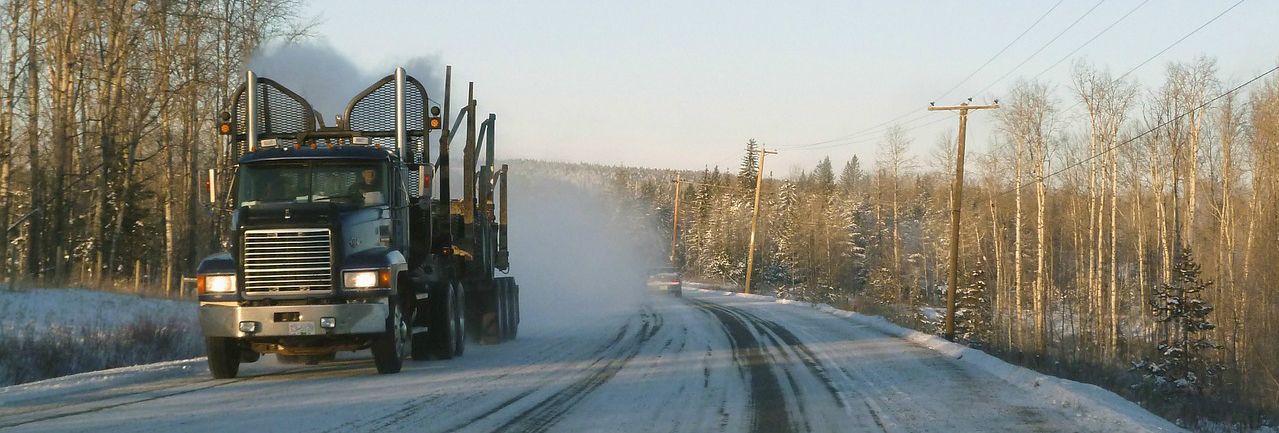At What Temperature Does Diesel Fuel Gel?
By on Dec 15 2022
Do your fuel problems actually stem from diesel gelling or another winter problem?
As temperatures decrease and we make our way into the winter season, owners and operators of diesel equipment may find themselves with a huge problem. Either their equipment won’t run, or it may run ineffectively, potentially stopping in the middle of the job. While winter has always been problematic for diesel engines, in recent years, changes to the fuel itself are making these issues both more prevalent and more extreme.
Diesel Fuel Has Undergone Changes
Since the 1990s, the EPA has mandated a reduction of fuel sulfur content by almost 100% (99.7%, if you want the specifics). Without going too in depth here, that is both a good thing and a bad thing.
Good because sulfur oxides are bad for the environment. However, the ultra-low sulfur diesel (ULSD) that is currently on the market today has decreased lubricity and lower cetane than the diesel fuel of yesteryear. That’s the bad.
Another change that has occurred to diesel is the addition of renewable hydrocarbon bio-fuels. The addition of renewable fuels such as corn and soy are creating issues, as well. ULSD, especially that which contains a percentage of renewable fuel, has a higher affinity to water than traditional diesel. Where high sulfur content helped diesel by keeping things mixed/dispersed (such as water), the lack of sulfur in ULSD means more potential for water issues because the water content is not being dispersed/burned off.
Water in your fuel tank is never a good thing, but it is especially troublesome in the winter.

How Winter Affects Diesel Fuel
You may be wondering what water and sulfur content have to do with diesel gelling. Frankly, not very much, but they have everything to do with most winter diesel issues. Actual diesel fuel gelling only occurs during extremely cold temperatures.
Icing Issues
Well before you start to experience diesel gelling, you’re going to have issues with water/icing. Remember how we talked about water being an issue with diesel fuel? Well, water freezes in the winter, and it solidifies at much higher temperatures than paraffinic diesel.
Without high amounts of sulfur in your diesel, water does not disperse throughout your fuel, but rather puddles. These puddles of water then get carried through your system and freeze.
If you’re experiencing an issue with your diesel engine in the winter, your problem is likely ice. However, extreme cold or prolonged issues can escalate to a fuel issue.
Diesel Cloud Point
All diesel fuel contains paraffin, which under normal circumstances improves lubricity and viscosity. However, cold weather cause the paraffin wax to thicken and crystallize. Diesel reaches its cloud point when wax crystals begin to stick together and the fuel takes on a cloudy appearance.
Once your fuel reaches its cloud point, it becomes resistant to flow. The next stage of compromised diesel is its Cold Filter Plugging Point (CFPP), where the crystallized wax begins to clog your fuel filters, preventing your engine from running.
Diesel Gelling Temperature Point
The next stage of compromised diesel fuel in winter is diesel gelling. At this stage, the fuel solidifies so completely that it can no longer flow at all (what we refer to as pour point). It’s important to note, however, that diesel gelling only occurs at very cold temperatures, below 10°F (-12°C). If you’re experiencing issues at temperatures above 10° to 15°F (-12° to -9°C), you’re likely dealing with an ice issue, rather than a gelling issue.
How To Protect Your Diesel Fuel In Winter
When it comes to diesel in the winter, untreated fuel is going to have issues and that is a simple fact. You can use winter-specific diesel fuel additives to mitigate any issues relating to fuel gelling and filter ice.
Preventative Measures
Power Service Diesel Fuel Supplement + Cetane Boost is a popular anti-gel that actually resists wax formation by lowering both the cloud point and the gelling point. This product should be added to your fuel when temperatures drop below 30°F.
Note: not all fuel is equal, which means not all cloud points and pour points will be at the same temperature. For instance, low quality fuels may have cloud points as high as 40°F, although most [untreated] fuel has a cloud point around 32°F. Use of an anti-gel supplement should keep you operating at temperatures well below 10°F. How much below all depends on the quality of the diesel fuel it is applied to.
Restore Gelled Diesel
If you operate in a cold climate and your fuel has already gelled or clogged your fuel filter, Power Service Diesel 911 is best for such an emergency. This product re-liquefies gelled fuel and deices filters and frozen fuel lines. This product is also effective when used in advance to remove water which prevents icing.
When it comes to maintaining effective operations, it’s not only important to supplement your fuel during the cold winter months to prevent failed starts or starved engines. It is also important to treat your diesel fuel year-round, and you can learn more about that here.
Shop our full line of Diesel Fuel Additives





